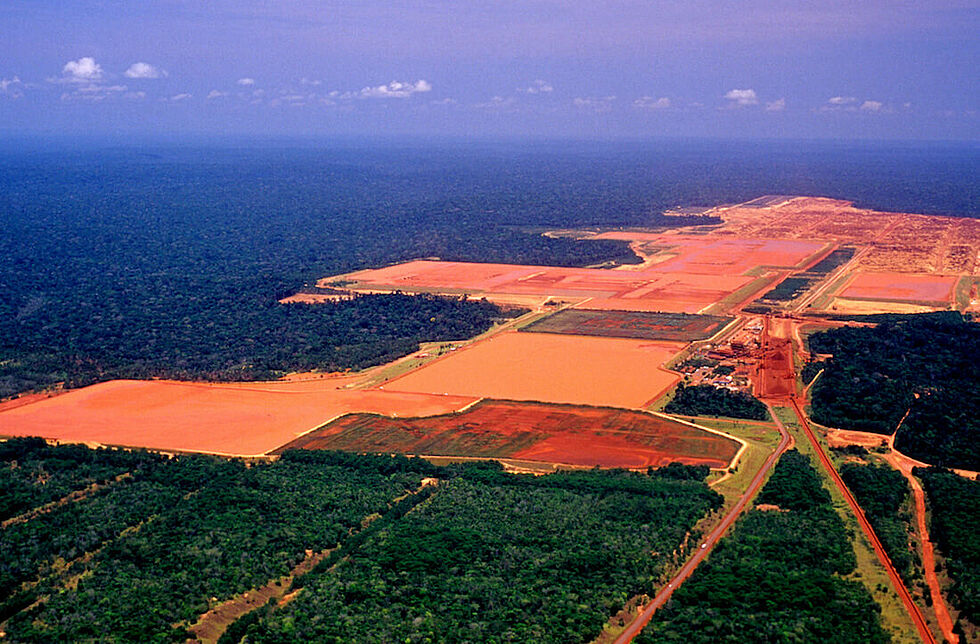Opportunities and challenges for a coherent climate strategy for the Latin American continent
The need for a transition towards renewables has been widely recognized in the Latin American region, yet the measures taken in many countries could be more ambitious. Christian Denzin, since 2015 the coordinator of a regional project by FES on Socio-Ecological Transformation in Latin America, tackles this and other topics with focus on the region, in an interview, part of this month’s FES Connect series on climate change and energy policy.
Connect: How has the focus of climate change and energy policies shifted over the years in Latin America?
Christian Denzin: There has been a shift in climate and energy policies in recent years, yet the picture varies quite a bit from country to country. Generally speaking, climate change has become a more visible topic and governments had and have to respond to and position themselves towards the negotiations at the climate conferences. COP 20 in Lima (2014) and COP 21 in Paris (2015) were important reference points and put pressure on national governments to identify low carbon development pathways and reduce CO2 emissions; as were also the Sustainable Development Goals and the corresponding 2030 Agenda of the Economic Commission for Latin America (CEPAL).
Although Latin American countries contribute relatively little to global CO2 emissions, energy consumption has been rising corresponding with the region’s economic growth over recent decades. And it will continue to rise. If we take the Paris Agreement seriously, the average CO2 emissions will need to decline from 7 to 2 tons per capita by 2050. Brazil and Mexico, the world’s 12th and 13th biggest emitters, already emit more than 2 tons per capita despite high levels of poverty. That means, if the countries follow their traditional development pathways, and manage to bring more people out of poverty, their emissions will grow even bigger.
Governments have reacted already, but the actions are often not coherent. Latin America is one of the most vulnerable regions in regard to climate change. Those who will be affected most, won`t be able to adapt in the ways the higher income groups will. Moreover, the costs of climate change will be higher than the economic investment needed to contribute proportionally to the reduction of global emissions. The need for a transition towards renewables has been widely recognized in the region, yet the measures taken in many countries could be more ambitious.
What could governments in Latin America do to tackle these challenges?
CD: There is huge and untapped potential for the use of renewables from which the region and its inhabitants could benefit in many ways. Despite this, the climate and energy policies are still very fragmented and not very coherent. Above all, energy policies in the region have been focusing mainly on the traditional sectors, and usually neither focus on the economic potential of renewables nor consider the social dimension sufficiently. In those countries with fossil fuels the incentives for an energy transition have been low.
Take Mexico: Although the Law on the Energy Transition was passed right before the Paris Agreement, the political economy of Mexico clearly favours fossil fuels. The Nationally Determined Contributions (NDCs) to emissions reductions are way behind Mexico`s potential. Shale gas, which in Mexico according to the law is clean energy, is heavily subsidized. So is petrol; so is electricity.
Unfortunately, it is mainly the richest quintile that benefits from these energy subsidies according to CEPAL. Despite a nearly universal access to energy, 37 per cent of Mexican households suffer from energy poverty. That means, they can`t afford to satisfy their basic energy needs, while those who consume more energy – usually the higher income groups – are benefiting from subsidies on their monthly bills and at the petrol stations.
Especially in the energy sector, there should be more differentiated approaches that could contribute to redistribution and tackle poverty. There are concepts that try to take advantage of the decentralized character of renewables and tackle the issue of energy poverty at the same time, with very elaborated subsidy schemes for the poorest households, which would allow them to generate their own income through feed-in mechanisms after a certain period of time. These kinds of ideas come usually from civil society organizations and the academic sector. Also, the economic sector seems to recognize the potential of renewables, and there are interesting projects. Yet, most political parties – no matter whether left-wing or right-wing – lack a coherent vision for the future of the country's energy sector and are stuck in the energy politics of the 20th century, and/or correspond to clientelistic networks. There are other obstacles such as human rights violations and social conflicts surrounding the implementation of some wind power projects for example in Oaxaca and Yucatan, too, which unfortunately have created a bad reputation for local projects, despite many positive examples.
However, the situation in Mexico can´t be transferred to other countries.
There are also quite a few positive examples in Latin America. Uruguay managed the transition of its electricity sector within a few years and relies on hydro- and wind power. Especially the latter has experienced a huge expansion after the energy reform of the Mujica government. Also, Costa Rica managed to produce 100 per cent of its electricity with renewables. Aside from these rather small countries, Brazil stands out, it traditionally has a huge share of hydropower. The good news is, that over the last 5-10 years, we have been observing a growing interest in the field of climate change, sustainability and energy transition within our counterparts throughout the region and various offices work systematically in the field.
Which difficulties is the continent currently facing? Where do you see challenges in the current environmental and climate situation?
CD: Latin America has structural economic problems. If you look from an environmental and sustainable point of view, the situation is anything but inspiring. Despite a huge service sector, the export of natural resources, above all fossil fuels but also mineral resources, plays an important role for many countries. On the one hand, the expansion of mining (and fracking) has led to a rising number of socio-ecological conflicts from Argentina to Mexico over the last decade, due to devastating levels of pollution of water, soil and air. The affected regions and local populations often suffer from the consequences of the extractive industries. Moreover, there is a certain fiscal dependency of national governments who finance big shares of their annual national budgets through the incomes of the extractive industries, regardless of whether these are generated through state-owned companies such as PEMEX in Mexico or private companies such as Repsol in Bolivia.
The problem is not that extractive industries exist, but the way they are (not) integrated into the local and national economies, the importance of the export sectors and above all the failure of strict regulations. Many countries could minimize the negative socio-ecological impacts and reduce their fiscal dependency on these sectors. Renewable energies, aside from the positive environmental balance, create many more jobs on the local level. With falling production prices and rising efficiency, they have become competitive also in Mexico. A country with an industrial base like Mexico could take advantage of its capacities in knowledge and production by incentivizing a renewable energy infrastructure, which would moreover make it attractive for the production of electric cars. Still, as mentioned above, the subsidies are directed towards fossil fuels. Meanwhile, cities like Mexico City or Santiago de Chile, to name a couple, suffer from traffic chaos and air pollution to degrees that are more poisonous than smoking a pack of cigarettes per day.
How does this correspond with your work and with the projects you are undertaking at the moment? How is the FES approaching these challenges?
CD: In Latin America, we have been working on these topics for nearly a decade now. Many colleagues have accompanied the debates on energy policies and climate change with studies, conferences and publications in order to contribute to the national and international debates on these topics. We have also been accompanying the debates on alternative development approaches for years now.
This is also the main focus of the Regional Project on Socio-Ecological Transformation.
In 2015, we set up a working group with different experts from all over the region in order to analyse the developmental challenges and opportunities for Latin American countries. It is a multidisciplinary group of experts from different backgrounds, among others there are several former ministers from Colombia, Ecuador and Uruguay, academics and experts from civil society groups. With the working group, we have been discussing the predominant paradigms and narratives behind the development pathways of the region and are trying to formulate an alternative agenda from a progressive point of view.
Currently, we are undertaking a series of comparative studies on various economic sectors, trying to analyse the status quo in each sector and to identify areas of actions. We are trying to contribute to the debates on development not only on a discursive level, but also want to build bridges to concrete policies. For example, we analyse the current energy matrices and the potentials of renewable energies on the South American subcontinent, and try to identify policies that coherently contribute to a more democratic, decentralized and decarbonized climate strategy. The results will be released at the beginning of next year, and we are going to discuss them with our counterparts on the national level.
Christian Denzin is the Director of the Regional Project Socio-Ecological Transformation in Latin America located in Mexico For more information on climate and energy policy work by FES in the region, contact transformacion(at)fesmex.org.
About FES Connect
Connecting people, in the spirit of social democracy, we source and share content in English from the German and international network of the Friedrich-Ebert-Stiftung.





